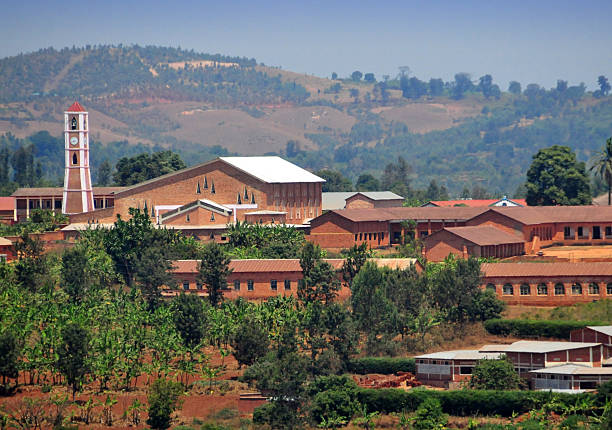Edit Content
Edit Content
Edit Content
Edit Content
Edit Content
Edit Content
We have a team of professionals to help you with all your business needs. So, that you can focus on business expansion in Central African Republic.
Please feel free to email us on [email protected]
The Central African Republic is a landlocked Central African Republic. It is bounded to the north by Chad, to the northeast by Sudan, to the east by South Sudan, to the south by the Democratic Republic of Congo, to the southwest by the Republic of Congo, and to the west by Cameroon, The Central African Republic Republic has a population of around 5 million people, and it’s capital and largest city is Bangui. The nation is recognized for its diverse biodiversity and diverse wildlife, which include elephants, gorillas, and chimpanzees. The Central African Republic’s economy is mostly dependent on agriculture, with cash crops such as cotton, coffee, and tobacco serving as key exports. The nation also contains large mineral deposits, including uranium, gold, and diamonds.
The Central African Republic is rich in natural resources such as uranium, gold, diamonds, timber, and oil, this opens up possibilities for investment and economic progress.
The Central African Republic has Excellent soils and a good environment for agriculture, with cash crops such as cotton, coffee, and tobacco being key exports.
The nation has a rich cultural legacy and diverse biodiversity, including gorillas, chimpanzees, and elephants, which might attract tourists and produce income for the country.
The Central African Republic Demands International investment in a variety of industries, including infrastructure, mining, and agriculture, This creates an opportunity for investors.
People with a tax domicile in the Central African Republic with worldwide income.
An individual is regarded to have his or her tax residence in the Central African Republic if he or she satisfies one of the following conditions:
Corporate tax rates in the Central African Republic are normally 30% for all companies, with a certain exception for Specialised sectors such as agriculture, A special corporation tax rate of 20% is available for agricultural-related companies.
The tax regime for companies in the Central African Republic depends on their turnover scale. For companies with a turnover between 30 and 100 million XAF, the Simplified Actual Regime applies, and they must pay their corporate income tax (CIT) in two equal installments by March 15th and September 15th each year. The first installment is determined based on the tax from two years prior and must be regularized by June 15th at the latest. For companies with a turnover of more than 100 million XAF, the Actual Normal Regime applies, and they must pay their CIT in three equal installments by February 15th, June 15th, and October 15th each year, with the first installment, determined based on the tax from two years prior.
The general VAT tax rate is 19% applied to most goods and services, but there may be a reduced rate of 5% for certain essential goods that are listed as first needs items. Additionally, for goods that are exported and declared to the customs office, as well as for international transportation services, a zero rate of 0% may be applied.
Alcoholic beverages, cigarettes and tobacco, perfumes and cosmetics, and precious stones are all subject to a 25% excise charge in the Central African Republic. Non-alcoholic beverages produced in the country are free from the 10% excise charge levied on imported competitors.
There are several ways of doing business in the Central African Republic, Businessmen have an option of establishing public limited companies, etc. Foreign legal entities may also set up a branch office or Representative office in the Central African Republic.
A sole proprietorship is a business held by a single individual. From a legal perspective, the firm and its owner are regarded as synonymous. On the positive side, this implies that all gains are the owner’s property (after taxes are paid, of course). On the negative side, the owner is personally liable for the firm’s losses and obligations
A partnership is a legal form of business where two or more individuals share management and profits. A binding partnership agreement, known as a partnership deed, outlines the rights and responsibilities of all parties to the business. The Cameroon government recognizes general and limited partnerships, with general partnerships having the partners manage the company and assume responsibility for its debts and obligations.
A private limited company in French S.A.R.L. is a type of company that provides limited liability to its shareholders, protecting them legally. However, there are certain ownership restrictions, including the need to offer shares to existing shareholders before selling or transferring them, not offering shares to the public over a stock exchange, and limiting the number of shareholders to a fixed number, typically 50.
A public limited company (PLC) allows securities to be traded on the stock exchange and can be bought and sold by anyone. They are strictly regulated and required by law to publish their complete and true financial records. PLCs are also known as publicly held companies and are formed by filing articles of association that describe their purpose, membership, and capital. PLCs grant limited liability to shareholders and allow businesses to sell shares to investors to raise capital.
A branch of a company can be set up by a natural person or a body corporate. Its legal personality is directly linked to that of the natural person or body corporate that sets it up. It can be created by either a domestic company or a foreign company.

The Central African Republic is a landlocked Central African Republic. It is bounded to the north by Chad, to the northeast by Sudan, to the east by South Sudan, to the south by the Democratic Republic of Congo, to the southwest by the Republic of Congo, and to the west by Cameroon, The Central African Republic Republic has a population of around 5 million people, and it’s capital and largest city is Bangui.
Author: Chandrawat & Partners
Topic: Doing Business in Central African Republic
Download our comprehensive guide on – Doing Business in Central African Republic
Get in touch with the right people to get the right help in setting up your business in Central African Republic.
Contact us at: [email protected]


A partnership is a legal form of business where two or more individuals share management and profits. A binding partnership agreement, known as a partnership deed, outlines the rights and responsibilities of all parties to the business. The Cameroon government recognizes general and limited partnerships, with general partnerships having the partners manage the company and assume responsibility for its debts and obligations.
A private limited company in French S.A.R.L. is a type of company that provides limited liability to its shareholders, protecting them legally. However, there are certain ownership restrictions, including the need to offer shares to existing shareholders before selling or transferring them, not offering shares to the public over a stock exchange, and limiting the number of shareholders to a fixed number, typically 50.
A public limited company (PLC) allows securities to be traded on the stock exchange and can be bought and sold by anyone. They are strictly regulated and required by law to publish their complete and true financial records. PLCs are also known as publicly held companies and are formed by filing articles of association that describe their purpose, membership, and capital. PLCs grant limited liability to shareholders and allow businesses to sell shares to investors to raise capital.
A branch of a company can be set up by a natural person or a body corporate. Its legal personality is directly linked to that of the natural person or body corporate that sets it up. It can be created by either a domestic company or a foreign company.



Chandrawat & Partners is a prominent full-service firm dedicated to delivering top-tier professional services to clients both within the domestic and international spheres.
Copyright © Chandrawat & Partners. All Rights Reserved.
Copyright © Chandrawat & Partners. All Rights Reserved.
Chandrawat & Partners stands as a dynamic and rapidly expanding full-service firm, specializing in the delivery of exceptional professional and corporate services to a diverse clientele, both foreign and local. We proudly represent companies and individuals across a wide spectrum of sectors through distinct entities established in various countries worldwide.
Chandrawat & Partners stands as a dynamic and rapidly expanding full-service firm, specializing in the delivery of exceptional professional and corporate services to a diverse clientele, both foreign and local. We proudly represent companies and individuals across a wide spectrum of sectors through distinct entities established in various countries worldwide.
ASIA
AFRICA
EUROPE
NORTH AMERICA
SOUTH AMERICA
OCEANIA